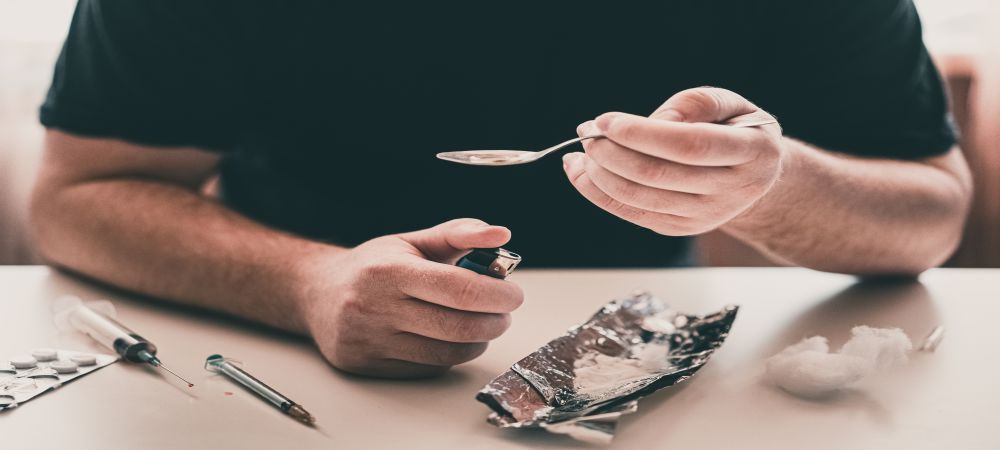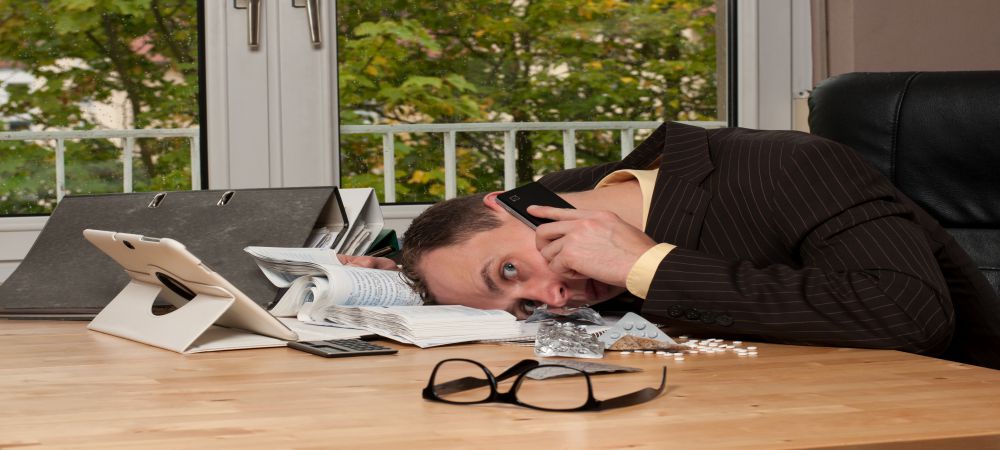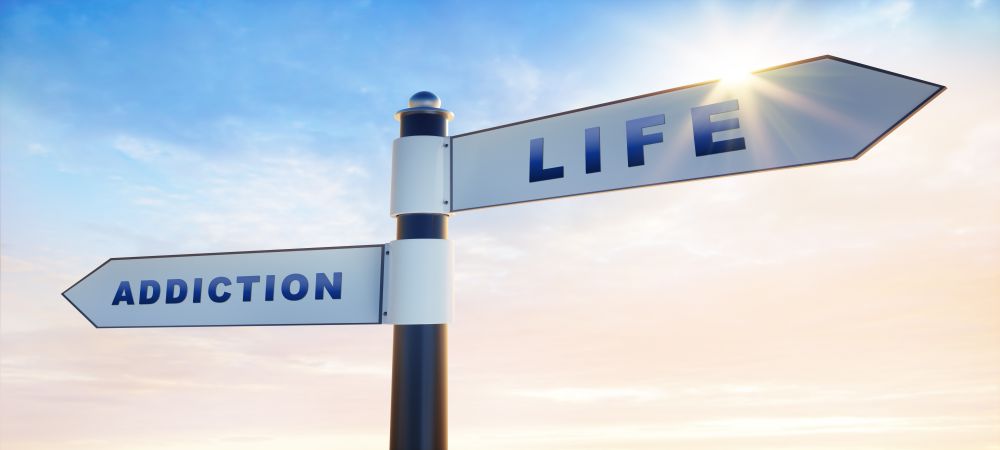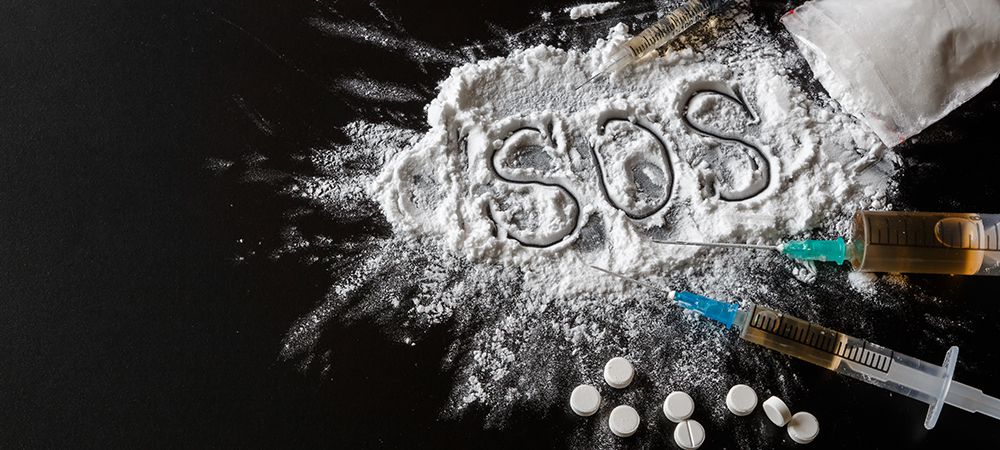
Is There Hope for Someone Dealing with Heroin Abuse?
With the way the effects come at you, it is easy to lose hope in recovering from heroin abuse. However, like with any other addiction, you can get better.
A lot of effort must go into understanding your condition, right from knowing how it starts. Knowing how to manage heroin addiction also helps to be confident in your treatment options when you seek them.
In this article, we will show you that there is hope for heroin abuse. We will also discuss what to expect during treatment and how to get ready for it.
Heroin: Drug Fact Sheet
Below are the important details to know about heroin addiction:
What Is Heroin?
Heroin is part of a class of drugs called opioids or narcotics. It is an addictive processed drug made from morphine. Heroin can be said to be the most abused opiate drug.
It is produced from the seed pod of a plant called opium poppy. It may appear in a powder or sticky substance called black tar. Depending on how it is produced, the colour ranges from white, brown, rose gray, or black. It often includes particles of sugar, powdered milk, starch, or quinine.
Signs And Effects Of Heroin Addiction
The signs and symptoms of heroin addiction may differ as no two people have the same peculiarities. However, some generic signs exist for recognizing the consumption of heroin. These occur after the rush or euphoric feeling that comes from using heroin. They include:
- Dryness of the mouth
- Shortness of breath
- Looking untidy and unkempt
- Pupil dilation and rapid eye movement
- Warm flushing of the skin
- Twitchy body movements
- Heavy feelings in your arms and legs
- Facial twitching
- Loss of appetite and weight loss
- Frequent itching of the body
- Pain in the heart and chest
- Obsessively picking at the hair and skin, causing cuts and bruises
- Lack of sleep and inconsistent sleeping pattern
- Consistent and intense headache
The behavioural pattern of a person consuming heroin may be affected. The signs of this include:
- Incoherent, slurred, or garbled speech
- Unclear and clouded mental judgment
- Lack of motivation and decrease in productivity
- Dressing in unusually long clothing to hide needle marks
- Hyperactivity, higher energy, and restlessness
- Decline in self-esteem and self-confidence
- Anxiety, nervousness, irritable behaviour, and disability
- Avoiding eye contact and withdrawing from favourite activities and relationships
Heroin also has long term effects on your body. Some of them include:
- Disease of the liver and kidney
- Insomnia
- Complications with the lungs like pneumonia
- Heart lining and valves infection
- Mental illnesses like depression
- Sexual dysfunction
- Irregularity in menstruation
- Contracting infectious diseases like HIV, Hepatitis, etc.
Considering the severity of these effects, it is easy to think there is no hope for heroin abuse. However, as we will highlight over the course of this article, heroin addiction treatment and recovery is very possible!
How Is Heroin Consumed?
Heroin is consumed through the process of injecting, sniffing, snorting, inhaling, or smoking. Of these methods, the most dangerous of all is the process of injecting heroin.
Heroin is often injected with a needle into the veins. This drug goes straight into the body and brain, leaving users prone to risks of overdose.
Another issue is the ability to get infected through the use of needles. Heroin abusers take little or no precaution when using. As such, they resort to using unhygienic practices. The practise of sharing needles also makes it easy to contract diseases.
How Long Does Heroin Stay In The System
The presence of heroin in the body begins instantaneously as soon as you take the drug. If it is injected into the veins, the euphoria starts from the seventh second. It takes two to five minutes if injected into the muscles.
On average, the euphoria sets in between 45 seconds and a few minutes. The high moments last from about ten to thirty minutes.
This is usually followed by lethargy, sleepiness, apathy, commonly known as sedation. This is a common effect accompanying the use of heroin, and it lasts longer.
Heroin can be detected in a drug test between one to three days. It will take an average of two to four days for the substance to leave the body and go undetected in a urine test. This is usually dependent on the quantity consumed and the peculiarity of the user.
Heroin And Addiction: Why All The Questions About Hope
Heroin addiction occurs when a person becomes physically and mentally dependent on the drug. This can arise from consuming the drug a few times.
You should know you cannot get addicted after just one dose. According to Drug Policy.org, an estimate of 80% who consume heroin do not become addicted to it.
There is an interaction between heroin and the opioid receptors in the brain. After administering, it moves from the blood to the blood-brain barrier, creating a reward sensation in the brain.
Once this happens, an artificial sensation occurs. This eventually reduces the ability of the brain to produce a natural feeling of pleasure. Repeated usage of heroin further worsens this process leaving an addict to rely on the drug before getting any rewarding feelings from the brain.
You see, the body gets conditioned to it over time. This leaves the user with little option as regards quitting the usage of the drug. Finally, addiction sets in, and the person becomes dependent, physically and mentally, on heroin.
This condition can be very detrimental to the brain leaving short and long-term mental effects on the brain. These effects include damage to the nervous system, coma, or complete brain damage. At such a point, it is only natural to wonder if there is hope for heroin abuse.
Is There Hope for Heroin Abuse: Recognizing a Heroin Addiction
It is hard to miss heroin addiction. The drug significantly alters your brain physically, thereby affecting eventual body function. Some of the specific signs you can expect to see are listed in this section.
Inability To Stop Using
A heroin addiction, as with any addiction, is difficult to stop. The more you use, the more your brain changes, reinforcing the need for the drug.
Heroin addicts are very aware of their addiction. They sometimes understand the dangerous extent of the drug. But it does not make it any easier for them to stop.
What is common among heroin addicts is they often attempt many times to put a halt to the habit. However, they are continuously unsuccessful. Some may even find it tougher to try to stop and so, refuse to make any attempt. This is a classic sign of a heroin addict.
Drug-crazed Behaviour
Heroin dependence happens fast. In only a few days after the first hit, users may start craving the drug. If they go without the next possible dose of heroin, they may begin to go into withdrawal.
On the severity scale, withdrawal symptoms can range from bearable to excruciating. Generally, those symptoms are hated and avoided at all costs.
The only solution seemingly available to the addict to avoid withdrawal is to get another fix. The compulsion to continue using the drugs, regardless of the condition, makes a heroin addict develop drug-seeking behaviour. As such, it is easy to lose hope in recovery from heroin abuse considering the intensity of the cravings.
For most people using heroin, it automatically becomes their top priority. They start to channel all of their energy into finding and using the drug. This may lead them to engage in some untoward actions like:
- Stealing, from friends and family, anywhere possible to fund the drug habit
- Abandoning essential responsibilities to oneself, to friends, at work, and to family to obtain and then use the heroin
- Visiting emergency rooms often, with the hopes of leaving with an opioids prescription
- Secretly using from a loved one’s opioid prescriptions
Generally, you can expect to see the addict behave as they have never before. They can go to any length to get the drug!
Related Article: The Long Term Effects of Heroin Abuse
Poor Health
Of course, anyone snorting, smoking, or shooting up heroin will be fully exposed to its effects. A drug as potent as heroin has multiple negative outcomes that result from its use. Naturally, the results will depend on how much and for how long the drug has been used.
Some of these effects include pulmonary, skin and heart infections, collapsed blood vessels, and physical changes in the brain. Also common among heroin users are sexually transmitted diseases like HIV and hepatitis, chronic constipation, and depression. The possibility of an overdose, which can be fatal, also adds to this gory picture of health.
These peculiar conditions are highly debilitating, with some even fatal. With some of these conditions, the impact may stay for the rest of their lives
Furthermore, the focus on heroin by its users affords them little time to focus on their health. This only worsens the health status as they are unable to pay enough attention to themselves.
A Depressed Feel
Although heroin is said to produce a ‘high’, it actually works to generate a low. Heroin is a central nervous depressant. It essentially slows down your brain and body.
This implies that an addict will also experience slowness of their mental processes and physical function. If you are observing such a person, you will recognize a depressed feel in their behaviour.
These feelings occur most frequently and significantly while the person is under the influence. But you should not be surprised to see these effects while the person is not on the drug.
Signs of depressed feelings include:
- Excessive sleepiness
- Slow body movements
- Slow reactions and reflexes
- Nonchalant attitude
- Reduced mental sharpness
- Sleeping off mid-activity such as during conversations
All these effects combine to make a heroin addict seem like a shell of their former self.
Is There Hope For Heroin Abuse?
According to Drug Abuse.gov, no addiction, no matter how deep-seated it is, is unbeatable. Even people with severe and longstanding drug problems have overcome the problem and regained their lives.
If you want to get better, it starts with your mind.
- You are already aware of your problem. Many heroin users are aware that the drugs are dangerous. While that is not in question, you must also recognize that the drugs are leading you down a horrible path.
Apart from greatly damaging your health, it is leading you to ruined relationships and financial insecurity. It is not uncommon for heroin addicts to lose their jobs and homes. These are not situations to aspire to. Therefore, as much as possible, you must have a determination to get better.
Once you can admit this to yourself, then you may well be on the way to recovery already.
- Heroin addiction is not a fancy thing to ascribe to yourself. At the same time, it is not the end of the world. Therefore, while you have made a conscious decision to get better, you must have faith in the treatment options available to you.
Believe you can actively get better. You may read about your condition to learn more about it. Understand how you got into the habit. Also, when you read reports of studies evaluating success rates, it may help you feel more confident.
Even while reading about such, it may not seem like you can achieve this kind of success with recovery. However, you need to shore up confidence, and the best way you can do that is to see a professional. By enrolling at a heroin addiction treatment center, you’ll get the opportunity to speak to counsellors and experts.
- Because it often leads to alienation, it is easy to feel there is no hope for heroin abuse. Times like these are the best to reach out to friends and family and start making amends. By coming clean about your addiction, they will be able to understand you and care for you.
The most likely thing is your loved ones will have noticed the changes in you. So, don’t be surprised when they react more calmly than you expect. But also, be sure of their love for you and their wish for you to get better.
- As your addiction counsellor may tell you, going through recovery is not usually an easy process. The stronger the addiction, the more difficult the recovery. This is why it is better to seek help as early as you can.
With this, you need to have a strong commitment to it. During recovery, you may have a strong urge to use again. You may even relapse. Recovery is usually a life-long journey, so you should not get discouraged. As long as you keep recommitting to it, you will get better at it.
So yes, there is hope for heroin abuse. It does not come easy, but it is possible. We will discuss the actual treatment options available to you in the next section.
The Path to Recovery from Heroin Addiction
The path to recovery from heroin addiction involves professional help. It starts by going in to see an addiction counsellor or any other professional dealing with addiction treatment.
Generally, a whole addiction treatment cycle may span between thirty and ninety days. It can be longer depending on your need.
Regardless, all treatment programs start with a detox.
Detox
Detox is a process of removing all the heroin in your system. During heroin detox, you are not going to top up with another fix. As you can imagine, this means your body will start to go into withdrawal.
Although the timeline differs, you can expect to start feeling withdrawal symptoms within a few hours and up to a day. The withdrawal symptoms reach the peak after 48 to 72 hours and may continue for up to a week.
Withdrawal symptoms can be debilitating. You may expect to feel bone pain, muscle cramps, nausea, vomiting, and diarrhea. Restlessness, insomnia, and depression are also usually seen during this period.
Furthermore, there are different methods of detox, depending on the presence or otherwise of medical personnel. Under the supervision of medical personnel, you will be given certain medications to help with symptoms.
Getting through the detox process infuses a lot of hope of recovery from heroin abuse. It’s proof that if you keep on the path, you can achieve long-term sobriety.
Medication-assisted Treatment
The hallmark of heroin treatment is the medication-assisted method. The idea is to reduce cravings for heroin as much as possible. The therapy also helps with the presence of withdrawal symptoms, staving them off as you go through detox.
There are specific drugs that are commonly prescribed for this purpose. They work using the same receptors in the body that heroin works through. But they are safer and less likely to produce the same effects as heroin.
Methadone
This drug has been in use in treating heroin abuse and providing hope for many decades. Interestingly, it is an opioid receptor agonist, like heroin, but acts slowly and does not produce a ‘high’. It is used to suppress the cravings for heroin and reduce withdrawal symptoms.
Ironically, methadone is habit-forming and must be used carefully when employed as a part of heroin addiction treatment. It is the go-to option when other medications are not as effective as expected. It is often used for long periods, making it easier to abstain from heroin.
Buprenorphine
Buprenorphine is a partial opioid receptor agonist. It produces similar effects to heroin but at an intensity that is considerably less. It is also less potent than methadone, though they share the principle of action. It reduces cravings and is particularly useful during withdrawal, even working to alleviate chronic pain.
The drug may be formulated alone but often comes with naloxone, an opioid receptor antagonist. Naloxone helps to prevent getting high by injecting heroin. Attempting to use heroin while on this drug is dangerous as you will need higher amounts of heroin for the same effects. This can eventually lead to an overdose.
Buprenorphine is also habit-forming, and its use must be carefully monitored.
Naltrexone
This is the third drug commonly used in medication-assisted treatment of heroin abuse. Naltrexone is an opioid receptor antagonist – it counters the effects of heroin. You will not feel the euphoric effects of the drug. This way, you will be able to abstain from the drug.
Naltrexone is non-addictive and non-sedating and does not result in physical dependence. It has been considerably successful, providing hope for recovery from heroin abuse.
Adjunct Treatment
After detoxification and medication, the other vital steps in heroin recovery involve behavioural therapy. Like with treating other addictions, the available options are cognitive behavioural therapy, contingency management interventions, and motivational incentives, among a host of methods.
The most common is counselling for heroin abuse. This may be done individually or in groups. The idea is to be able to open up and confront your drug problem. Typically, this can take many forms:
Cognitive Behavioral Therapy
This is a form of therapy with the eventual goal of modifying your behaviour and helping you recognize your drug triggers.
With it, you realize how you react to certain events, which make you resort to drugs. You are then able to abstain from such behaviour, and consequently, stay drug-free. This method anchors on providing hope for your heroin abuse and makes you realize that you can get better completely.
This method of cognitive behavioural therapy is one of the most effective ones available. You can rest assured that you are well on your road to recovery.
Contingency Management Intervention
This is also another of the available options for treatment. It involves using incentives to encourage an addict to get treatment and continue staying away from drugs.
It is usually not used alone. You can expect to continue undergoing other forms of therapy in combination with contingency management sessions.
Related Article: Heroin Addiction: The Obvious Signs To Look Out For
There is Hope for Heroin Abuse
There certainly is hope for someone dealing with heroin abuse. The path to recovery is usually winding, but the destination is reachable.
If you have decided to get help, you should contact 1000 Islands Therapy Centre for our world-class heroin addiction rehab services. Apart from having seasoned professionals, we have also created the right environment to help you begin your recovery journey. Reach us today!





